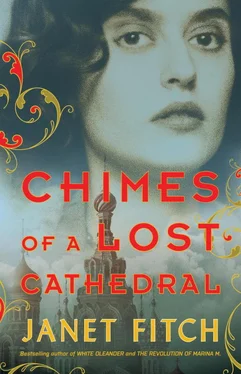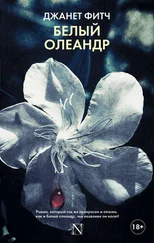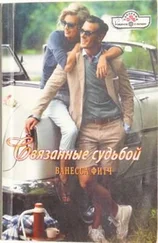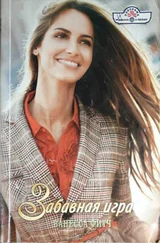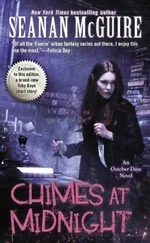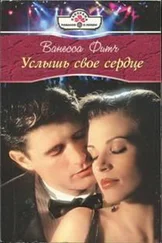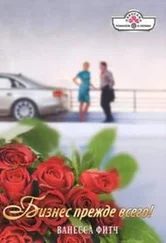But that boy had died.
The midwife took my hand. “ Devushka, say goodbye now. As if it is your last day on earth.”
The shock, the fear of it, the reality, sank in the rest of the way. Death in childbirth. “You really think I’m going to die?” I whispered. My mouth was so dry.
“You have to submit, to whatever comes. Any holding back will make the birth harder. It is important, this farewell. It is the first of the unfastenings.”
Yes, I understood. For once, I had to submit, utterly. This was bigger than me, the war I was moving into, bigger than the train, bigger than the sun, it would blot out the sky. I struggled to sit upright, she propped me up. I took a deep breath. “Goodbye!” They all looked up. “Goodbye, Genya. Don’t forget me.”
I could see him struggling with himself, his shock as great as mine. I knew him. He could show his anger in front of his comrades, but not his tears. He knew that everything he did now would be remembered eternally. He had to act as heroic as the worker painted above him on the side of the train. Perhaps the train was the devil, after all. Which will you protect, the revolution or your pregnant wife? He was trembling like a horse, his eyes pleading. I forgive you.
“Now your parents,” the old woman told me. “Wherever they are. Your brothers and sisters, your friends.”
Was I dreaming this? “Goodbye, everyone.” Tears streamed down my face. “Goodbye…” Mama, Papa.
“Forgive them,” she commanded.
Mama? It won’t live. And Papa, with Arkady that night, playing right into his hands. “I can’t, I don’t know how.”
“Pray for guidance. Ask the Holy Mother to show you. Go on.”
Please, Holy Mother, help me to forgive them. Unbind me. I tried to remember when I had loved them most. Mama in her morning dress, arranging roses. Come help me, Marina. Brushing my hair with her soft ivory brush, rubbing my cheeks with a rose petal to make them rosy. Papa, letting me lace the links into his starched cuffs, teaching me to play chess on Sunday afternoons. Bringing the box home from the printers, my blue books, their gleaming gold leaf. Just the first of many, he’d said.
“I forgive you,” I whispered.
The comrades gathered around Genya, the politicals, the actors, side-glancing guiltily at him as he stood among them with his arms folded, his cap in his grip, under the rising sun of the Red October. His bright-painted train, his revolution. I forgave him. All of them. Kolya, Seryozha. Papa. Varvara, Genya. I could see the tears dripping down his sweet face.
Here was Slava, tucking my sheepskin roll next to me in the wagon, my boots and bast shoes, as if tucking my things into my grave. The sky was puffy with clouds. Goodbye, Genya. Goodbye.
The peasant slapped the reins and the sky began to move.
The dry rutted road stretched from horizon to horizon, my own Vladimirka. Though I sweated and shivered, dry mouthed, cramping, nauseated, I was grateful to be off the train and in the care of this straight-backed old woman. I lay across her knees as she rubbed my back. She wasn’t Avdokia, but far closer than a crowd of dumbfounded actors and slogan-spouting Bolsheviks, not one of whom was acquainted with the bare facts of life. Maybe I’d have this baby right here in the wagon. I just was glad to be moving, grateful for the rocking of the cart, the slight breeze, the silent peasant, the grunting wheeze of the horse. I felt safe, safer than on the bright train of the Future, which, disappearing, already seemed unreal.
The pains came and went, and the midwife murmured prayers and pressed my back, resting her broad hand on my belly. I slept when I could. I dreamed of my mother. She was wrapped in a blue veil, with Ukashin at her side. What appears to be a straight line is only part of the larger form. Yes. I’d forgotten. I was in this wagon feeling its rhythmic jolts, but also in the nursery with Avdokia, getting ready for bed. And still under the snow halfway to Alekhovshchina. And watching flakes falling into the Catherine Canal from a white bed, where Kolya smoked a cigar. I was the old woman at my side, and also the child struggling to emerge from my feverish body. Perhaps I was also standing on the Finland shore, breathing the briny air, looking out over a swamp, and saying, This is where I will build my city .
Sometime later—an hour? A year?—we entered a village, trees passing overhead, the cries of chickens and children. The cart stopped. The midwife spoke to someone. Would we get out here? I peered over the side. A little hard-baked village, a red cow, women at the well. She told the peasant to drive on.
I groaned. “This isn’t it?” We’d been driving so long.
“A little farther. Almost there.” She patted my back.
We creaked over the deep ruts out the other end of the village, back into the buzzing green, the jammy scent of hot pine, branches intertwined above us, insects whirring, until we finally pulled up before an izba nestled deep in the trees like a witch’s hut. This tumbledown izba, half choked in vines. What was next, hen’s legs? Baba Yaga? Hut, turn and face me. A young woman waited for us there. She wore the same face as the midwife, and a blue sarafan and white embroidered blouse. She helped steady me as I climbed from the cart. So this was where I would have my child, wherever this was… Zhili-buili, once upon a time… I’d been transported back to when tsars won their kingdoms through valor, and horses had wings and firebirds made promises.
The midwife handed my sheepskin and bundle to the young one. The silent peasant drove off. “This is my daughter,” the midwife said. The young one’s braid was blond, while the midwife’s was gray, and her cheeks were as round as peaches. Other than that, they were the same woman. I was seeing across time, from youth to age. There is no time, the Ionians said. It’s just your place on the spiral.
They led me, not to the izba but down a path overgrown with grass and starred with flowers, to a pond covered in duckweed. In a clearing stood a bathhouse. The baba, the woods, the bathhouse. I’d been brought through time to a Russia that existed before it even bore the name. I vomited into the grass, though I had little in my stomach, a sour thread.
At the threshold, another young woman waited, identical to the first, but wearing a red sarafan with a plain white blouse, her braid the same blond, her face the same moon. The bathhouse was crude and dark and I was afraid. I balked, fighting weakly, but the midwife and her daughters shoved me inside. A small wooden hut, the three of them tall and broad shouldered and buxom. Where would there be room for me? Candles lit the darkness, and the floor was strewn with straw and fragrant herbs—such a strong scent after the fresh air, very green, both bitter and sweet, artemisia and chamomile and mint, and it made me feel oddly less sick—a surprise. I hadn’t imagined myself feeling better even for a moment.
In the red corner, a lamp glowed before an icon of the Vladimirskaya Theotokos in her black robe, the Child nuzzling her cheek, her face steeped in pity. I glanced back at the daylight as they closed the door. Goodbye! The next time I saw the sun, I’d have a child in my arms… if I ever saw it again. So this would be my arena, my gladiator’s pit—this bench, this stool, this straw… I wondered how many women had come here for their children’s birth. How many had lived? How many had died? Had it been scrubbed since the last time?
They laid my sheepskin on the simple bench. The midwife bowed, crossed herself, and knelt in the herbs, as did the daughters. They pulled me down between them. Together we prayed for intercession, a swift delivery. I noticed a second icon next to the Vladimirskaya, a Theotokos I’d never seen—veilless in a red cloak, long red hair flowing freely over her shoulders. I’d never seen a redheaded Virgin. That had to be a good sign. My lips moved along in silent prayer, my teeth chattering with fever. O my All-Gracious Queen Theotokos, my hope who befriends orphans and intercedes for strangers, joy of those who sorrow…
Читать дальше
